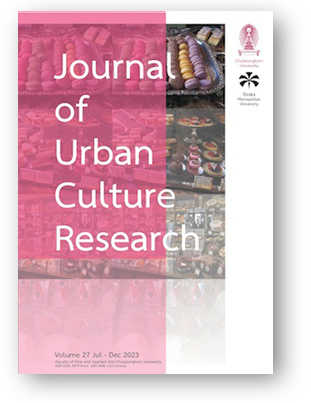Wading in the Covid-19 Pandemic: Fate and Ways Forward for Malaysian Creative Cities
DOI:
https://doi.org/10.14456/jucr.2023.21Keywords:
Creative Cities; COVID-19; Malaysia; Impacts; Resilience; Strategies; Cultural PoliciesAbstract
Since the 2019 Wuhan outbreak, the COVID-19 pandemic badly hit all sectors of the global economy. The creative and cultural sectors (CCS) are among the hardest hit. The value chain of CCS (i.e. creation, production, distribution, accessibility to contents) was severely immobilized. In cities, mitigation measures implemented to contain Covid-19 significantly downsized the CCS. Jobs, incomes and livelihoods of creative and cultural employees were threatened. These scenarios question the readiness, resilience and sustainability of CCS, particularly in cities. The fate and way forward of creative cities are now a grave concern. This paper aims to investigate the impacts, developments, reactions and policy responses of Malaysia’s CCS and creative cities as Covid-19 unfolds. Based on primary (i.e. interviews) and secondary data, three emerging Malaysian creative cities (i.e. Kuala Lumpur, George Town and Ipoh) were studied. The findings revealed that while government assistance is forthcoming, there is still room for inclusive policies from all tiers of governments and across diverse stakeholders (i.e. private, public, civil society) to reach out to creative employees who are socio-spatially segregated in Malaysia. It is also an opportune time to revisit and reinstate Malaysia’s CCS into national development given that these sectors were sidelined even before Covid-19.
Downloads
Published
Versions
- 2023-12-23 (2)
- 2023-12-21 (1)
How to Cite
Issue
Section
License

This work is licensed under a Creative Commons Attribution-NonCommercial-NoDerivatives 4.0 International License.
Authors authorize the JUCR to publish their materials both in print and online while retaining their full individual copyright. The copyright of JUCR volumes is retained by Chulalongkorn University.
The views and opinions expressed herein are those of the individual author(s) and do not necessarily reflect the policies or opinions of the Journal (JUCR), it editors and staff, Chulalongkorn University, or Osaka Metropolitan University.








